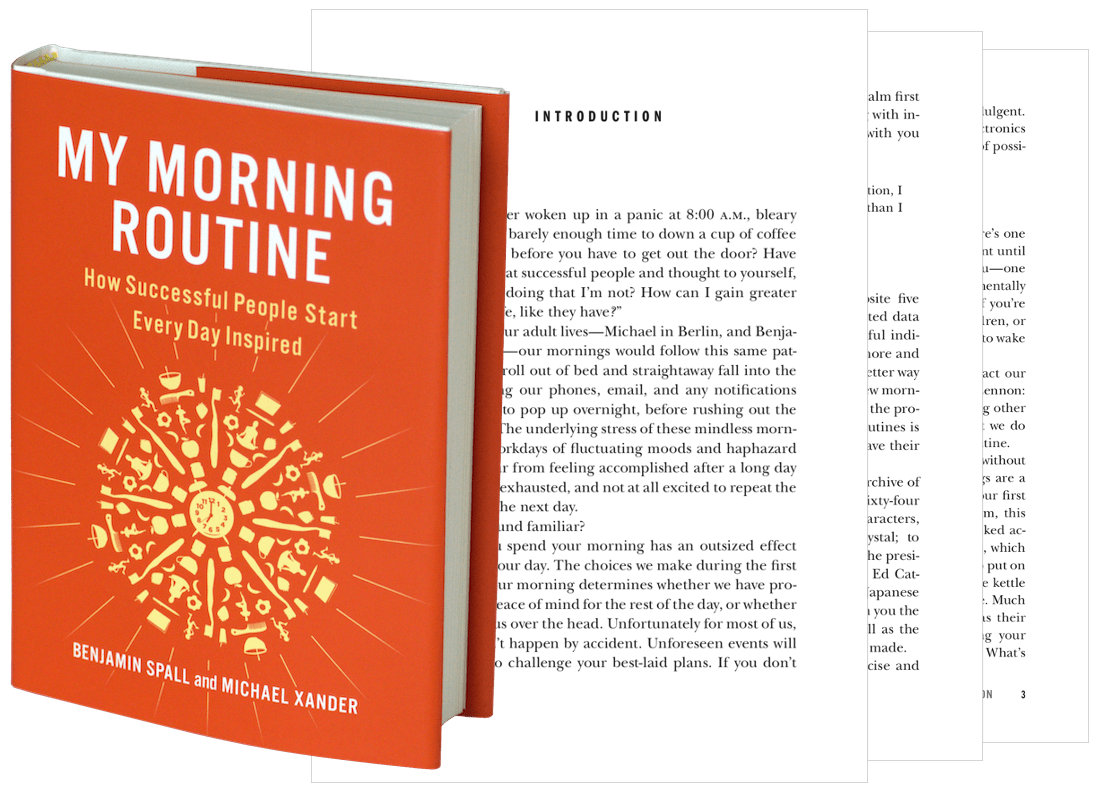What the Most Satisfying Jobs Have in Common

What makes a job satisfying? While all jobs have their positives and negatives, the most satisfying jobs tend to have a number of things in common that ensure job satisfaction and fulfillment over the long term.
While these jobs may not look alike on the surface, the most satisfying jobs (and looking at a longer time frame, the most rewarding careers) have a number of key characteristics that, when combined, allow you to feel fulfilled at work.
These characteristics are essential in order for us to perform meaningful work. While they include how well you’re paid, the length of your commute, and whether or not you get along with your colleagues and boss, they go deeper than this, looking at core values that get to the center of who you are as a person.
In this article, I’m going to dig into a list of the most satisfying and fulfilling jobs according to the most up-to-date research to uncover specific career paths you may wish to go down, after which I’m going to look into what makes a job satisfying in the first place.
Let’s jump right in.
The Most Satisfying Jobs for a Fulfilling Career
In 2017, Tom W. Smith, director of the General Social Survey at the National Opinion Research Center (NORC) at the University of Chicago released a report titled Job Satisfaction in the United States.
In the report, Smith and his colleagues ranked the twelve most satisfying jobs in the country on a scale that measured job satisfaction and general happiness. Per Smith:
Three occupations finish in the top dozen on both job satisfaction and general happiness. The clergy distinguishes itself from all other occupations by ranking first in both job satisfaction and general happiness. Firefighters do almost as well being third on job satisfaction and second on general happiness.
According to the University of Chicago report, these are the most satisfying jobs for a fulfilling career, ranked from most to least satisfying:
- Clergy
- Physical Therapists
- Firefighters
- Education Administrators
- Painter, Sculptors, Related
- Teachers
- Authors
- Psychologists
- Special Education Teachers
- Operating Engineers
- Office Supervisors
- Security and Financial Services Salespersons
And this is a list of the least satisfying jobs according to the same report, ranked from least satisfying:
- Roofers
- Waiters/Servers
- Laborers, Except Construction
- Bartenders
- Hand Packers and Packagers
- Freight, Stock, and Material Handlers
- Apparel Clothing Salespersons
- Cashiers
- Food Preparers, Misc.
- Expediters
- Butchers and Meat Cutters
- Furniture/Home Furnishing Salespersons
Smith notes in the report that “Most of the occupations ranking high in general happiness are professions involving helping others.” This is instructive, as we will see in the next section...
What Makes a Job Satisfying?
In a TED Talk on how helping others makes us happier, social psychologist Elizabeth Dunn dug in on this phenomenon:
In one experiment, my colleagues Kiley Hamlin, Lara Aknin and I brought kids just under the age of two into the lab. We gave kids this windfall of Goldfish [crackers] for themselves and a chance to give some of their Goldfish away to a puppet named Monkey. Now, we trained research assistants to watch these videos and code toddlers’ emotional reactions. Of course, we didn’t tell them our hypotheses. The data revealed that toddlers were pretty happy when they got this pile of Goldfish for themselves, but they were actually even happier when they got to give some of their Goldfish away.
Dunn continued:
This warm glow of giving persists into adulthood. When we analyzed surveys from more than 200,000 adults across the globe, we saw that nearly a third of the world’s population reported giving at least some money to charity in the past month. Remarkably, in every major region of the world, people who gave money to charity were happier than those who did not, even after taking into account their own personal financial situation. And this correlation wasn’t trivial. It looked like giving to charity made about the same difference for happiness as having twice as much income.
It’s clear from Dunn’s research that giving money to charity and other charitable sources can make us happier, but her research, correlated with Smith’s University of Chicago report, also shows that one of the key characteristics that the most satisfying jobs have in common is not just giving to others, but feeling a sense of connection with those you are helping.
Per Dunn:
Back in my lab, we’d seen the benefits of giving spike when people felt a real sense of connection with those they were helping and could easily envision the difference they were making in those individuals’ lives.
You can watch Dunn’s full TED Talk below:
Of course, directly helping others and making a difference in those individuals’ lives isn’t the only thing that makes a job satisfying. The most satisfying jobs have a number of key characteristics that, when combined, allow you to feel fulfilled at work.
I should stop here to say that what makes a job satisfying will be different from one person to the next. The way I find meaning, fulfillment, and satisfaction in my work is unlikely to be exactly the same as to how you find it in yours, and we all have different wants, needs, and ideas of what the perfect job or career looks like.
With that said, these are the seven key characteristics of what most commonly contributes to making a job satisfying:
1. Directly Helping Others
No surprise here. The most satisfying jobs, for most people, are those in which you are directly helping others and feeling a sense of connection with those you are helping.
The sense of fulfillment that comes from helping others in this way cannot be understated. How do you feel when you finish work every day? Do you feel like you truly helped another person, whether directly on a one-on-one level, or indirectly through something you worked on. Or do you feel like you just pushed some numbers around on a page?
It’s not surprising that so many millionaires and billionaires turn to philanthropy at the end (and now, often during the middle) of their corporate careers. They figured out that while they enjoy success at the corporate level, and all the benefits this brings, ultimately they are most fulfilled and satisfied in their work when they are directly helping others.
2. Your Pay
The most satisfying jobs offer a level of pay that you personally believe is enough for you to live on while comfortably paying your rent or mortgage and other bills, and setting some money aside in savings each month.
While not as important as your raw salary, receiving generous benefits from your employer such as fully-paid health insurance, dental insurance, 401(k) matching, and more will also go a long way toward improving your job satisfaction.
The numbers aside, one element of pay that isn’t discussed enough is fairness. Do you believe that you are paid fairly for the work that you do, both in comparison to your colleagues, as well as others in your field?
3. Work Fulfillment and Flexibility
How fulfilled are you in your day-to-day work? The most fulfilling jobs (and the most fulfilling careers) tend to be those that allow you to work on a diverse range of tasks on a daily basis.
This makes sense when you think about it. You may be a welder by trade, but that doesn’t mean your skills are limited to welding together new pieces of furniture, or fixing holes in damaged vehicles. Changing up what you do day-to-day by (for example) working on a new piece of concept art in the morning, while traveling to a remote location to fix a broken pipe in the afternoon, will bring variety to your work. This variety will keep you more engaged over the long term.
The most satisfying jobs also allow you to have a certain level of control and flexibility over your work. Returning to the example of a welder; an apprentice welder will have little control over what they work on (or observe) from one moment to the next. If you own your own welding business, on the other hand, you will have full control on the type of customers you take on, and what you’re working on at any given time.
4. Your Commute
The length and complexity of your commute will have a significant effect on how satisfied you feel in your job.
The rise in the move toward remote (or semi-remote) working, a move that was accelerated due to the COVID-19 pandemic, goes a long way toward combating this. But for everyone who cannot work from home over the long term, either due to the nature of the work itself or because of your employer’s policies, having a short and hassle-free commute can dramatically increase your job satisfaction.
5. Your Employer’s Reputation
The reputation of the company you choose to work for matters more than we typically give it credit for where it comes to job satisfaction.
While it will be personally important to you that your employer has a good company culture (with generous benefits to go along with it), for many of us it is equally important to us that this culture is recognized outside of our workplace, potentially through industry awards such as the annual Great Place to Work certification.
Equally, it is important that your employer conducts itself in a way that leads you to not be embarrassed to say you work there.
6. Opportunities for Advancement
While some people are content in their current positions, many want to feel that they have the ability to work their way “up the ladder” at their current company. This is known as the opportunity for advancement.
Knowing that you are able to advance in your current position is likely to positively affect your job satisfaction. Similarly, many of the least satisfying jobs are those in which opportunities for advancement are few and far between.
While promotions and pay rises are the goal, there are other ways in which your employer can show that they care about your professional advancement, including offering to send you to workshops or seminars that are designed to improve your skills in areas relevant to your job.
7. Good Working Relationships
Finally, when considering what makes a job satisfying we often undervalue how important it is for us to generally get along well with our colleagues and bosses.
While you don’t need to be best friends with the people you work with, having positive relationships with these people, and even considering some of them friends that you enjoy seeing outside of work, goes a long way toward your overall job satisfaction.
If you’re just starting out after college, or you’re looking for a career change, studying the most satisfying jobs according to the most up-to-date research, and learning what makes a job satisfying in the first place is a great place to start.
If you’re interested in hearing more from me, be sure to subscribe to my free email newsletter, and if you enjoyed this article, please share it on social media, link to it from your website, or bookmark it so you can come back to it often. ∎




